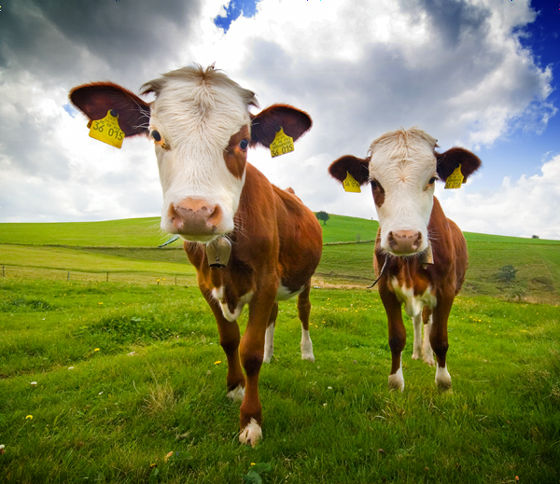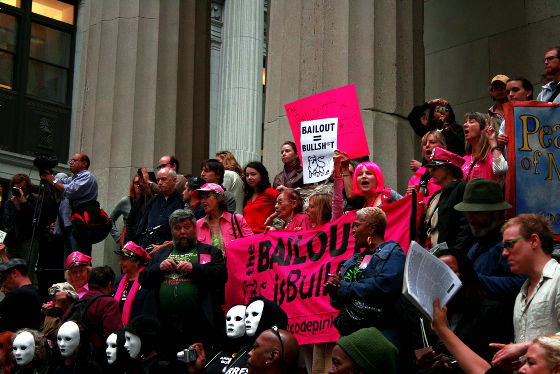Collective intelligence becomes mob because of bias, and how to prevent it

by
It is known that there is 'collective intelligence' that the opinions obtained from the group are closer to the correct answer than the answer given by one expert, but on the other hand, the group psychology makes the person 'mob rule' and acts stupidly. Sometimes. Research has revealed what is happening when you become mob rather than collective intelligence, and what you can do to prevent it from becoming mob.
Forget the Wisdom of Crowds; Neurobiologists Reveal the Wisdom of the Confident | MIT Technology Review
https://www.technologyreview.com/2014/07/14/172082/forget-the-wisdom-of-crowds-neurobiologists-reveal-the-wisdom-of-the-confident/
[1406.7578] Wisdom of the Confident: Using Social Interactions to Eliminate the Bias in Wisdom of the Crowds
http://arxiv.org/abs/1406.7578
In 1906, British university scholar Francis Galton visited a village where 800 people participated in a 'cow weighting contest.' After the contest was over, Galton gathered participants' expectations and averaged them, weighing 1208 pounds. Surprisingly, this was an error of about 1% from the actual cow weight of 1198 pounds (543 kg).

by
This is one example of what is called collective intelligence. The idea is that the opinions of a group that gathers a large number of individual opinions are closer to the correct answer than the opinions of a single expert. However, if you are an Internet user such as an online bulletin board, you should know that the idea that 'everyone's opinion is correct' is not always wise.
Then, when asked 'when does collective intelligence not become stupid?', According to recent research, 'the members of the group do not influence each other' is an important factor. It would be a wise answer if the group gave their opinions from the broad expectations of each individual, but collective intelligence when something is biased, that is, when they influence each other or are influenced by external factors. Becomes stupid.
In this regard, Gabriel Madirolas and Gonzalo De Polavieja, who study neuroscience at the Cajal Institute in Madrid, Spain, have clarified what can be done to prevent collective intelligence from becoming mob.
Behind their theory is a very simple idea. In other words, 'There are people who are easily influenced by people who are confident in their opinions.' People in groups with strong individual thoughts tend to come up with wise thoughts and tend to ignore collective intelligence because they are confident in their wisdom, so they don't have to worry about the impact, but they are affected. Easy-to-use people need to be isolated from groups with strong personal thoughts.

by
So how do you identify 'a person who has a strong personal idea'? Madirolas and Polavieja established the method from past research data of performing several tasks in succession. The first task in the study is to ask multiple groups the question, 'Find the length of the Swiss-Italian border,' and show the expectations made by the other groups when the task is completed. Then measure how much your next task will be influenced by the expectations of other groups.
Madirolas and Polavieja create a mathematical model of how much an individual accepts information from the outside, based on research data. The final conclusions that people make are based on two pieces of information, 'my own expectations' and 'comprehensive estimates made at the beginning,' and the conclusion is which of these two is more important. They think that will change. For example, people in a bias-prone group tend to put more weight on the overall estimate, and those who are confident in their expectations give no or less emphasis on the overall estimate.
Madirolas and Polavieja then adapted people's behaviors to mathematical models and revealed how independent their thoughts were.

by Ben Raynal
Using this method, it is possible to divide the group into 'people who have strong individual opinions' and 'people who are susceptible to bias'. To give a wise answer, you need to draw conclusions from people with strong personal opinions, and then add additional information to improve accuracy.
“Making wise predictions isn't just about the middle, it requires complex operations that take social dynamics into account,” Madirolas and colleagues said. The results of their research are attracting attention as they may be useful in creating new social news sites that derive true 'collective intelligence' that is not biased.
Related Posts:
in Note, Posted by darkhorse_log







